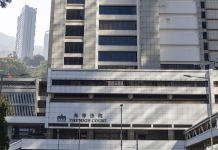URUMQI: Cotton growing is a profitable business that all residents in the Xinjiang Uygur autonomous region want to get involved in, especially since most of the labor is now done by machinery, a leading grower said.
“The claim that ‘forced labor’ is involved in the cotton growing industry is just a joke for us,” said Saderdin Ahat, manager of the Demin Cotton Growers Cooperative in Shayacounty. “We have expanded the growing area this year because quality Xinjiang cotton is in high demand.
“Our agricultural activity isn’t affected by the boycott of Xinjiang cotton from some international clothing brands at all,” he said in a recent interview. “The price of Xinjiang cotton is even higher than last year. I think people all know what’s going on behind the boycott.”
The cooperative in southern Xinjiang’s Aksu prefecture, with 1015.8 hectares of cotton farmland, has 10 large seed-planting machines and four drones to spray pesticides.
“The mechanization level involved in our production has reached more than 95 percent,” said Saderdin. “We only need a few people to pick cotton on the edges of fields that large machines cannot reach.”
On March 30 last year, the Better Cotton Initiative issued a statement expressing concerns over doing business with licensed growers in Xinjiang during the 2020-21 cotton season over allegations of forced labor. Boycott measures were then taken by international brands including H&M and Nike.
The allegations lack any factual basis as Xinjiang has achieved large-scale mechanization of cotton production through establishing high-quality farmland, land transfers and national agricultural machinery subsidies, according to a research report on cotton production in Xinjiang published on Tuesday.
The report ”Tainting Xinjiang Cotton Cannot Be Tolerated: The research report on whether ‘forced labor’ exists in cotton production in Xinjiang”-was issued by the Human Rights Institute of Southwest University of Political Science and Law in Chongqing.
The increasing level of mechanization in cotton production in southern Xinjiang can be attributed to multiple factors, according to the report. The emergence of cotton cooperatives and commercial services of cotton production increased the use of machinery and equipment. Government subsidies also significantly reduced the prices of agricultural machinery, the report said, adding that through mechanization large cotton farms had tried to reduce labor costs.
The research team conducted field research mainly in southern Xinjiang’s Aksu and Kashgar prefectures since March.
– The Daily Mail-China Daily News exchange item






